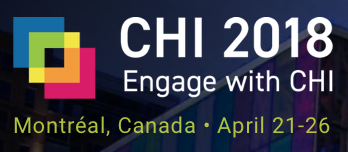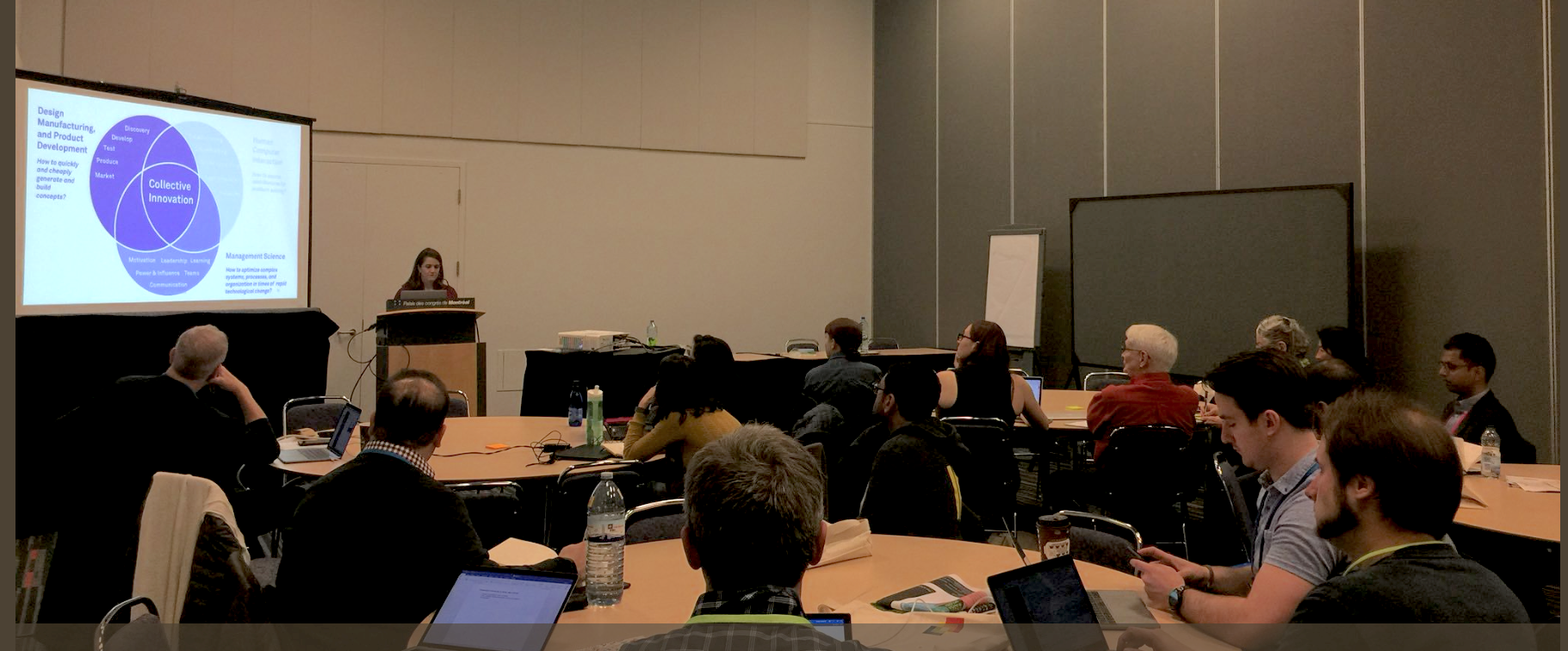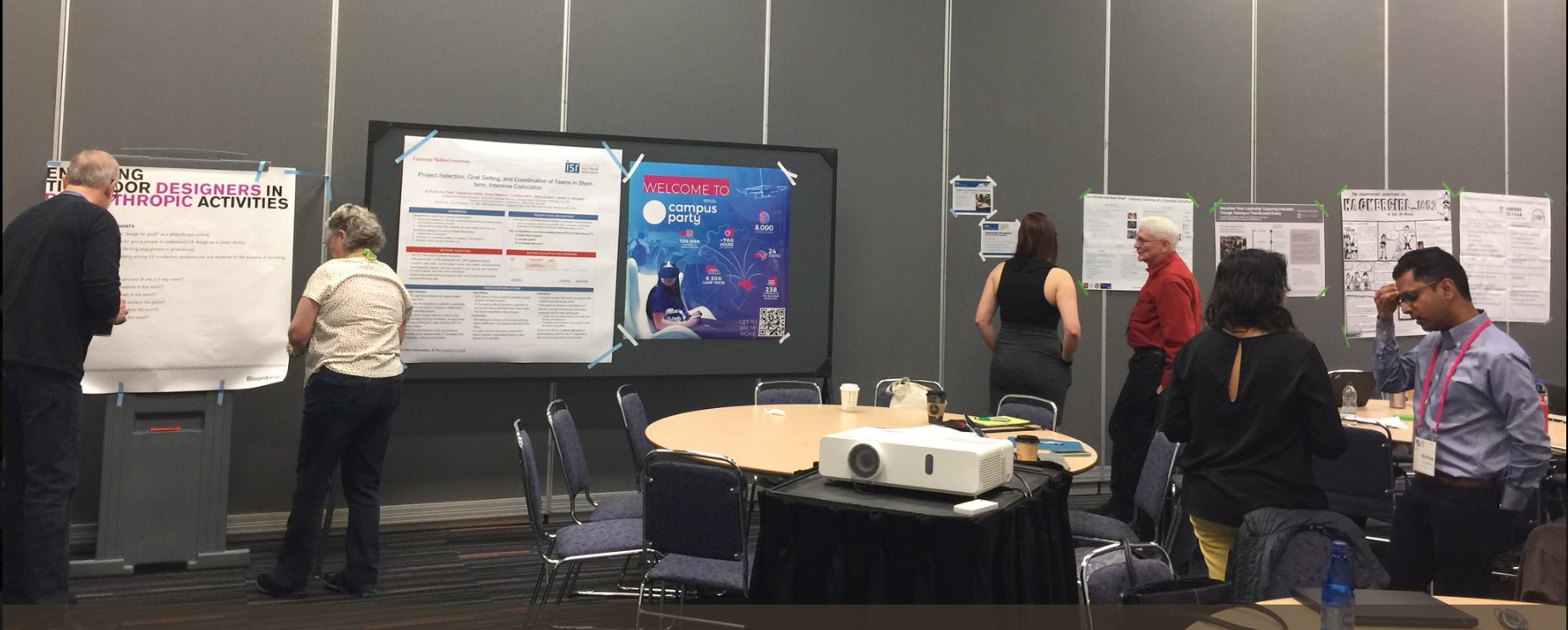Report from Hacking and Making at Time-Bounded Events at CHI 2018
- Details
- Published on Tuesday, 07 August 2018 16:00
By Mona Wong
SGCI co-hosted the Hacking and Making at Time-Bounded Events: Current Trends and Next Steps in Research and Event Design Workshop at the CHI 2018 Conference in Montreal, Canada on April 22. The purpose of the one-day  workshop was to bring together researchers and event organizers to share and learn from one another on the phenomenon of time-bounded collaborations such as hackathons, sprints, codefests, etc.
workshop was to bring together researchers and event organizers to share and learn from one another on the phenomenon of time-bounded collaborations such as hackathons, sprints, codefests, etc.
The workshop brought together 23 attendees, all with various backgrounds and ranging in experience from none at all (myself) to researchers interested in studying these events from a social perspective and also event organizers with varying degrees of experience. Most attendees were from academia but there were a few from industry. Most attendees submitted either posters or papers to participate in this workshop.
Jim Herbsleb, professor of Computer Science at Carnegie Mellon University, started off the event with a welcome and expressed his goal to form a community and compose a research agenda to learn more about time-bounded events. Next, each of the attendees gave a brief introduction about themselves.
The keynote speaker at the workshop was Elizabeth Gerber, Associate Professor of Design and Communications, co-director of Delta Labs, and Director of the Design Research Cluster at Northwestern University. Her research interest is focused on how technology and organizations foster collective innovation. In her keynote address, Gerber presented the following call-for-actions to event organizers:

Photo: Ei Pa Pa Pe Than
- Address organizing issues (bathrooms, electrical access, etc)
- Design for before, during, and after the event (day/week/month/year)
- Be explicit with expectations (including behavior code of conduct) and judging criteria; repeat judging criteria and other guidelines as necessary during the event.
After the keynote address, workshop participants made poster presentations. Here are some poster highlights:
Hack Week as a Model for Data Science Education and Collaboration (poster, paper)
- Domain-specific hack week
Hackathon Team Leadership
- Encourage psychological safety.
- Assist in the formation of team leaders and in maintaining connections.
- Provide alternatives for progress documentation.
You Hacked and Now What? (poster, paper)
- Microsoft held a week-long hackathon that was attended by over 6700 people!
- 70% of the participants wanted to continue the project after the event.
- 2 out of 5 projects did continue, however, none of the original participants were part of the continuation.
The Disappointing Adventure of Hackergirl (poster, paper)
- "Overt sexism and hyper-masculinity have emerged in hackathons in recent years, in the form of the BROGRAMMER. The term is often used pejoratively but some male programmers use it positively to reflect how social and outgoing they are."

Photo: Ei Pa Pa Pe Than
Here is a list of the other posters that were presented:
- Organization for Human Brain Mapping Open Science Hackathons: Accessible and Inclusive Neuroinformatics
- Hacking Creativity
- Breaking Gender Code: Hackathons, Gender, and the Social Dynamics of Competitive Creation
- Hackathon Team Leadership: Supporting Innovation through Teaming at Time-Bounded Events
- Collaborative community coding events in open source biological research
- Initial Findings from Hackathon Trace Data
- Engaging Time-Poor Designers in Philanthropic Activities through Time-Bounded Events
- Hacking Academia: How Academic Communities are Evolving a New Breed of Hackathon
- You Hacked and Now What? Exploring Outcomes of a Corporate Hackathon
- Team Familiarity, Goal Setting, and Process: A Case Study of a Corporate Hackathon
- Community Data Hackathons
All poster and paper submissions are available on the event schedule page.
After the poster session, attendees wrote down topics of interest on sticky notes and these were posted on the wall. During lunch, the organizers grouped them into three main topics which then formed three breakout groups that convened after lunch. Here are few highlights from the group I was in and links to all groups’ presentation:
- How to organize and run a hackathon
- Google Docs provide a very helpful collaboration tool
- Offer incentives/rewards
- Judging criteria needs to be very clear and visibly stated
- Judging process needs to be very transparent
- Designing for diversity and inclusion
- Hackathon outcome measurements
Additional Resources:
- Hackathon Workshop Slack Channel (anyone can request to join the channel)
- Devpost.com is a popular website for hackers who are looking for hackathon events or jobs.
We ended the workshop with a very interesting exercise lead by Elizabeth Gerber. We all sat in a large circle and each person got to say “I like …” and then “I wish/wonder …”. If a participant hears something that they agree with, they snap their fingers. It reminded me of a marriage counseling exercise where both people got a chance to express their needs without attacking the other person by starting their sentence with “I…”. The exercise was very well received and it was a wonderful way to end the workshop.